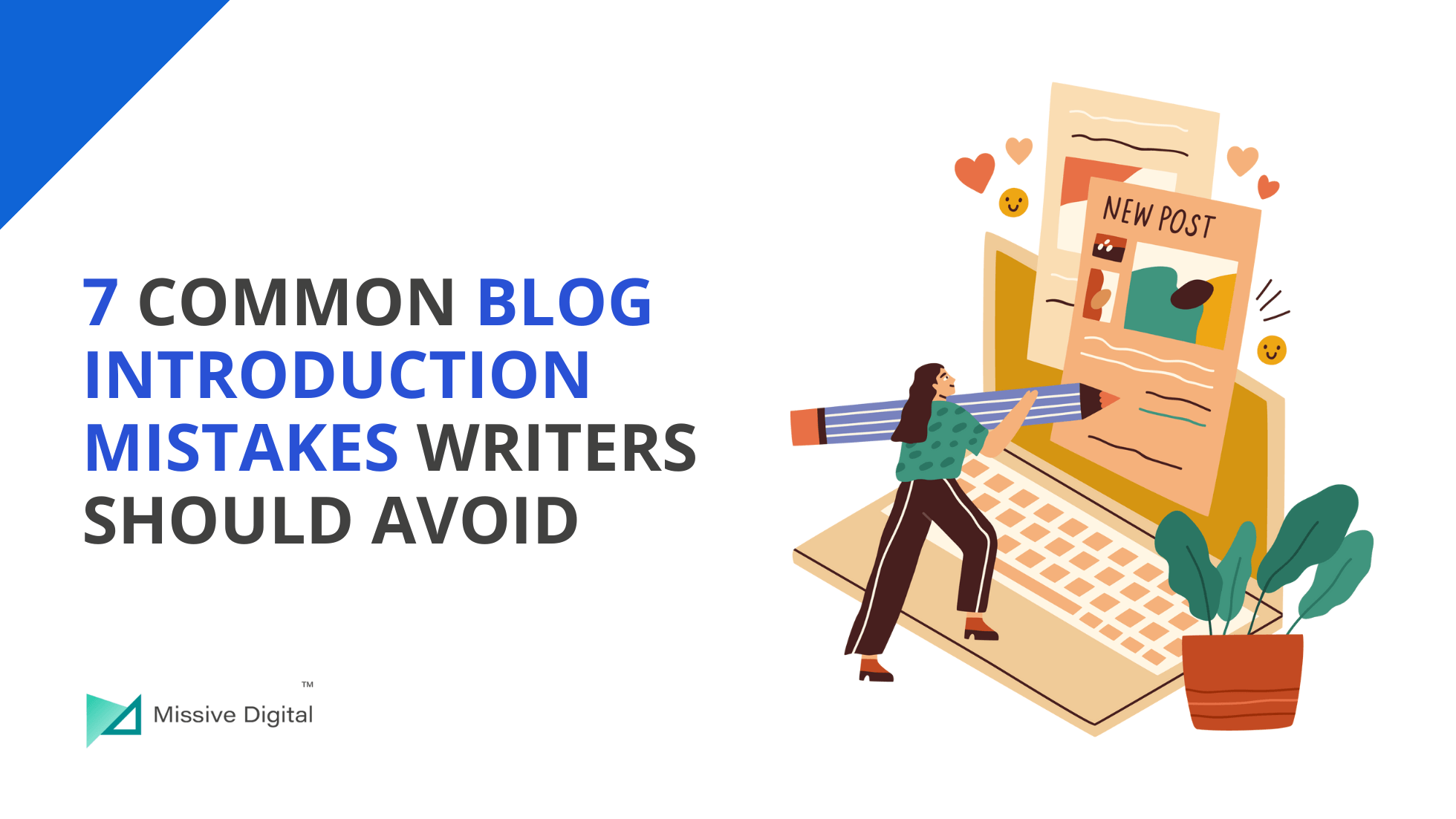SaaS companies need content writers to create and maintain a strong online presence, which starts with strategic Content Consulting to align content with business goals. This includes creating engaging and informative content that can help bring in new customers and retain existing ones.
Companies like yours can establish themselves as experts and build trust with their target customer base by providing valuable information.
Additionally, content writers can help you optimize your websites and other online properties for search engines, which can help increase visibility and drive more traffic to your SaaS sites.
However, a content writer unfamiliar with the SaaS industry may not be able to create content tailored to the specific needs of SaaS companies that speaks to the target audience. This can result in content that is not engaging or effective in attracting new customers or retaining existing ones.
So if you want your content to do the required magic and keep your content marketing flying high, you need to be careful while hiring the content writer for your SaaS business.
7 Tips for Hiring a SaaS Content Writer
You should look for the following skills while hiring a content writer for your SaaS product:
1. Industry Experience of SaaS products
A content writer for SaaS products should be familiar with SaaS products and their use cases, including pricing models, customer segmentation, and user experience.
Knowing the industry’s jargon will also enable them to create more effective messaging that resonates with their target audience.
For example, if a content writer is working for a SaaS platform in the banking industry, they need to know terms such as “distributed ledger technology (DLT)” and “real-time settlements” to create copy that relates to the intended audience.
It will be best if the content writer has previously worked with a SaaS product like yours. This will allow them to create content specific to your product features. For instance, the content writer will be able to relate the target customer challenges with the product features and will also be able to showcase them as a solution.
2. Proficiency in SEO
Since most customers discover new products through search engine queries, a content writer should have strong SEO capabilities to ensure their published content can reach the right people via search engines.
By including keywords and phrases that are relevant to the product and the target customer base, as well as structuring the content in a way that is easily crawlable by search engine bots, a content writer can increase the chances that their content will rank well in search engine results pages (SERPs).
This can lead to more visibility and traffic for the content and the website it is published on. Additionally, SEO helps to provide a better user experience, which can lead to increased engagement, shares, and conversions.
3. Excellent Writing and Communication Skills
Poor grammar and language usage can be off-putting and make it difficult for the audience to engage with the content, leading to lower engagement, shares, and conversions.
Therefore, content writers should have exceptional grammar and language skills because it helps to ensure that the content they create is clear, concise, and easy to understand.
Good grammar and language skills allow content writers to effectively communicate their message and convey their ideas to their audience. Proper grammar and language usage also help establish credibility and authority, which can help build trust with the audience.
Also, regarding SEO, good grammar and language skills play an important role in creating user-friendly, easy-to-read content that search engines favor. It makes the content more readable for both search engines and users, which can help increase the chances that it will rank well in search engine results pages (SERPs).
4. Basic Understanding of Marketing
Having a basic understanding of marketing helps content writers create content that is aligned with the overall marketing goals and strategies of an organization. It also allows content writers to understand the target audience and create content that is relevant to them, as well as understand the key messages and value propositions of your SaaS product.
Understanding marketing also helps content writers know the different stages of the customer journey and create content that addresses the audience’s different needs and pain points at each stage. This helps to increase engagement, conversions, and ROI.
Additionally, a basic understanding of marketing can also help content writers know how to promote their content and make it more discoverable to the target audience. This includes understanding the best channels to use for distribution and optimizing the content for different platforms and devices.
5. Ability to Write in Your Voice
When hiring a content writer, it’s important to ensure they can write in your brand voice. This means they can understand and effectively communicate your brand’s tone, style, and messaging in their writing.
A brand voice is the personality and character of a brand as it is communicated through its messaging and content. It’s the way a brand speaks and interacts with its audience, and it’s an important aspect of building a strong brand identity.
For example, if a company’s brand voice is friendly, approachable, and conversational, the content writer should be able to write in a way that is relatable and easy to understand for the target audience. They should use a personable tone and avoid jargon or industry-specific language that the audience may not understand.
On the other hand, if a brand’s voice is professional, authoritative, and formal, the content writer should be able to write in a way that reflects that. They should use a more formal tone, avoid using slang or colloquial language, and use proper grammar and sentence structure.
To ensure that a content writer can write in your brand voice, you can provide them with a style guide that outlines the key elements of your brand voice, such as tone, language, and messaging. You can also give them examples of content written in your brand voice and ask them to provide a sample of their writing that aligns with your brand voice.
It’s worth noting that it’s not just the words a content writer uses but also how they structure the content, how they use images, what type of language they use, how they format their text and many other elements that can help to convey the brand voice.
6. Research Skill
Research and analysis is an important skill for a SaaS content writer because it allows them to create relevant and timely content that is aligned with the market and industry trends. Research and analysis involve gathering information and data from various sources, such as market reports, industry publications, and competitor websites, and using that information to make informed decisions about the content.
For example, let’s say a SaaS content writer is creating a blog post about the future of project management software. They would first conduct research to gather information about the latest trends, such as the increasing popularity of agile methodologies, the use of artificial intelligence in project management, and the growth of remote teams. They would also analyze the data and metrics from the company’s website and social media channels to see what topics make sense to their target audience.
Once they have conducted the research and analysis, the writer can then use that information to create a blog post that is relevant and timely. For example, they could write about the benefits of agile methodologies, how artificial intelligence changes the project management landscape, and the best practices for managing remote teams. By incorporating the latest trends and insights from their research, the writer is able to create a blog post that is engaging and informative for the reader.
7. Self-Motivated with an Eye for Detail
If you go with a freelance or remote content writer, you must ensure they are self-motivated. As they’re more likely to work independently, they must have self-discipline regarding deadlines and meeting specified milestones for projects.
It’s essential for them to be detail-oriented as well in order for them not only to spot mistakes but also to ensure no core information is missed before submitting their deliverables on time.
How to Hire a SaaS Content Writer for Your Saas Business
Hiring a SaaS content writer requires a thorough understanding of the skills and qualifications that are needed for the role. The following are the steps that can be taken when hiring a SaaS content writer:
1. Define Your Requirements
You should define your requirements to have a clear understanding of the skills and qualifications that are needed for the role, which will make it easier to find a SaaS content writer who is a good fit for your company.
The following are some tips on how to gather requirements while hiring a SaaS content writer:
- Define the Goals and Objectives: Clearly define the goals and objectives of the content that the SaaS content writer will be responsible for creating. This should include information about the target audience, the type of content that will be required, and the overall goals and objectives of the content. For example, if the goal is to increase website traffic and lead generation, then the content writer should have experience in creating SEO-optimized content.
- Identify the Target Audience: Identify the target audience for the content, and ensure that the SaaS content writer has experience in creating content for this specific audience. For example, if the target audience is C-level executives, then the content writer should have experience in creating white papers, case studies, and other types of content that are targeted at this specific audience.
- Outline the Required Skills and Qualifications: Outline the required skills and qualifications for the SaaS content writer, such as technical writing skills, SEO knowledge, and marketing and branding experience. Be specific about what you need, for example, a candidate with experience in creating case studies and white papers.
- Define the Brand Voice and Tone: Define the brand voice and tone that the SaaS content writer will be expected to use. This will help ensure that the content is aligned with the company’s overall branding and marketing strategies.
- Provide Examples: Provide examples of the type of content the SaaS content writer will be responsible for creating. This will help ensure that the candidates clearly understand the expectations and can demonstrate their ability to create similar content.
By gathering these requirements, you can ensure that the content writer can create high-quality, engaging, and relevant content aligned with the company’s overall goals and strategies.
2. Find Potential Candidates
Start by researching reputable content marketplaces Pepper Content, or ask relevant online groups for recommendations and referrals. You can also look through candidate profiles on job boards located within various online communities to find well-versed content writers qualified for the task.
Additionally, you may wish to make contact with content writing agencies or be active on social media to attract qualified writers wanting to create content for your SaaS product.
3. Screen Candidates
Screening SaaS content writers is an important step in the hiring process. It ensures that you find a candidate who has the necessary skills and qualifications to create high-quality, engaging, and relevant content that is aligned with your overall goals and strategies.
While screening the SaaS content writers, you should look into their previously written works that are related to your industry niche. Make sure the work samples are well-researched, grammatically error-free, plagiarism free, and properly formatted.
4. Interview & Test
Interview candidates of best interest who successfully met prerequisites that outweighs other applicants. Also, evaluating them with related tasks such as writing sample essays. You can even ask the shortlisted candidates to write a proficiency test.
Onboard the SaaS Content Writer the Right Way
After hiring a content writer, it is important to set them up with the appropriate tools and processes to create content efficiently.
You should work with the writer to determine how they prefer to research, develop, write, and deliver their content. Additionally, you should provide an introduction to the company’s current strategy and style guides for them to be aware of as they create digital content and ensure that it is consistent with the brand.
It is recommended to plan regular check-ins and provide feedback so everyone is on the same page regarding progress and revisions. Finally, keep track of analytics from published pieces of content to measure effectiveness in reach, engagement, and conversions so you can continually optimize your content strategy as needed.





